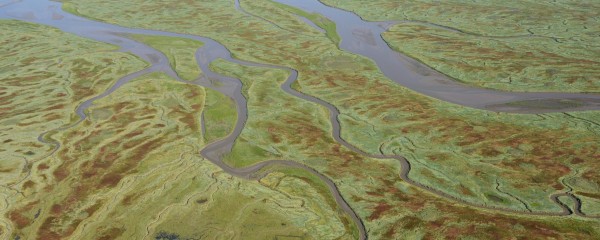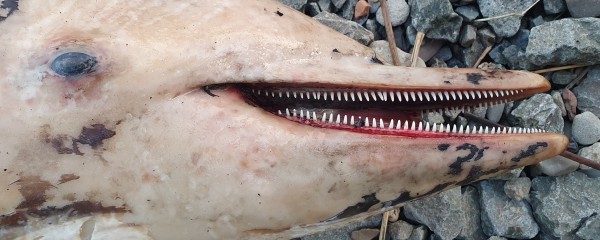Invasive alien species: how to tackle one of the five main causes of the biodiversity crisis?

On September 4, 2023, the Intergovernmental Platform for Biodiversity and Ecosystem Services (IPBES) published a new report on invasive alien species. This report provides an overview of the latest data, analysis and options regarding invasive alien species and their control. It shows that the solution to the problem of biological invasions is not simply a matter of technically eradicating the species, but that the range of actions required is much broader and requires strong commitment and broad cooperation between scientists, governments, stakeholders in the field and the general public.
The new report was discussed and adopted at the 10th IPBES Plenary Meeting held from August 28 to September 2 in Bonn, Germany. (#IPBES10). More than 140 governments worked together there to strengthen the scientific basis of biodiversity policy.
IPBES, often described as the 'IPCC for biodiversity', is the global science-policy body tasked with providing decision makers with the best available evidence to inform decisions that benefit both people and nature. In Belgium, the National Focal Point of IPBES is operated by the Belgian Biodiversity Platform, a national interface between science and policy funded by the Federal Science Policy (BelSPO), and hosted by five organizations: BelSPO, Sciensano, RBINS, INBO, and DEMNA (SPW). The activities of the National Focal Point include involving Belgian experts in writing the reports, involving various stakeholders in the IPBES work program, and leading the Belgian delegation in plenary sessions.


Policy options
Invasive alien species are one of the five main direct causes of biodiversity loss worldwide, alongside changes in land and sea use, direct exploitation of organisms, climate change and pollution. Goal 6 of the recently adopted Kunming-Montreal Global Biodiversity Agreement is to “eliminate, minimize, reduce or mitigate the impacts of invasive alien species on biodiversity and ecosystem services”. To address this, building on previous IPBES assessments (including the 2019 Global Biodiversity Assessment), 86 leading experts from more than 49 countries collaborated on this report over four years, including two Belgian experts.
Based on the latest data and knowledge, the report addresses the need to help decision makers understand the current status and trends of invasive alien species, their impacts, causes, management and policy options to effectively address the challenges they pose to grab.
More specifically, the report addresses the following aspects:
- Assessment of the diversity of invasive alien species that affect biodiversity and ecosystem services.
- Analysis of the extent of the threat such species pose to biodiversity and ecosystem services, including impacts on agrobiodiversity and food security, human health and sustainable development.
- Identification of the main routes and drivers of the introduction and spread of such species between and within countries.
- Highlighting the global status and trends in the impacts of invasive alien species and associated management measures, taking into account different knowledge and value systems.
- Assessment of the effectiveness of current international, national and subnational control measures and associated policy options that can be applied to prevent, eradicate and control invasive alien species, with a focus on response options.


Belgium's IPBES 10 team
The Belgian delegation at the 10th IPBES Plenary Meeting consisted of Hilde Eggermont (Belgian Biodiversity Platform/BELSPO & RBINS; IPBES National Focal Point & Head of Delegation), Anna Heck (Belgian Biodiversity Platform/BELSPO & INBO; IPBES Secondary National Focal Point), Hendrik Segers (National Focal Point for the Convention on Biological Diversity/RBINS; negotiator for Belgium during the discussion of the assessment), Els Van de Velde (Department Omgeving), Bart Rymen (BELSPO), Marie Baeckelandt (National Focal Point for the Convention on Biological Diversity/RBINS) and Sonia Vanderhoven (Belgian Biodiversity Platform/DEMNA).
Testimonials
Tim Adriaens, Research institute for Nature and Forest - "The IPBES report presents hard figures on the global impact of invasive species on biodiversity. The drift of biota across the planet, a direct result of global trade and travel, among other things, comes on top of habitat loss and climate change. The phenomenon is also amplified and is still increasing. The figures are such that you as a citizen may become despondent. Also in Flanders, with its fragmented open space and extensive transport network, invasive species weigh heavily on the quality of nature, which is already under great pressure. Combating invasive species has unfortunately become a daily routine for many nature managers. It also costs a lot of money. However, the report is also hopeful. It discusses realistic policy options for an approach at source and many examples of good practices and projects. European legislation creates a framework that was converted by Flanders into its nature legislation. Growing awareness in society is a prerequisite. People can do a lot themselves to prevent invasive species problems. Plant responsibly, do not dump garden waste or aquariums in nature, observe biosecurity during water recreation. And why not download one of the many apps to report invasive species, or help with control in the nature reserve around the corner? These are just a few measures, but they make a big difference locally."
Dr. Sonia Vanderhoeven (co-author of the report), Belgian Biodiversity Platform/ SPW DEMNA (Walloon Public Service Environment) – “The decline in biodiversity, the erosion of ecosystem services and the resulting reduction in quality of life are a reality on a global scale, as evidenced by the global and regional IPBES assessments. The new IPBES report addresses one of the five main causes of this situation: invasive alien species. Based on the latest data and knowledge available, it responds to the need to help decision makers understand the current status and trends of invasive alien species, their influences, causes, management and policy options to effectively address the challenges they pose to deal with."
Dr. Jane Reniers & Arnaud Jacobs, National Scientific Secretariat for invasive alien species & RBINS - "The IPBES thematic report on invasive alien species (IAS) and their management is a valuable compilation of the latest scientific knowledge on biological invasions and policy recommendations. The report is an important step in raising awareness of the urgent need to take action against invasive alien species. This report underlines the need for coordination and cooperation to decisively tackle the phenomenon of biological invasions. A principle already formalised in Belgium in 2019 through a cooperation agreement between the federal level and the regions on the prevention, rapid response and management of IAS of concern to the European Union. The document once again demonstrates how essential and cost-effective preventive measures are in the fight against IAS, thus underlining the importance of implementing the Belgian national action plan on the introduction and spread of IAS adopted in 2022. It also highlights the importance of a collective effort by all sectors involved to tackle the threat of invasive species. The involvement of a variety of actors is a key pillar of the Belgian national action plan against invasive alien species. Finally, this report gives a clear message: if an exponential increase in the impact and associated costs associated with invasive alien species - which can double every five years - is to be avoided, current efforts will have to be strengthened. So, more resources are definitely needed in the future to protect Belgium's biodiversity from biological invasions."




